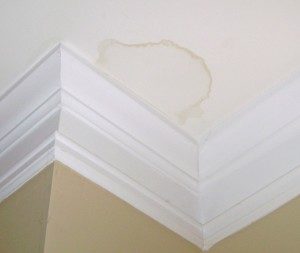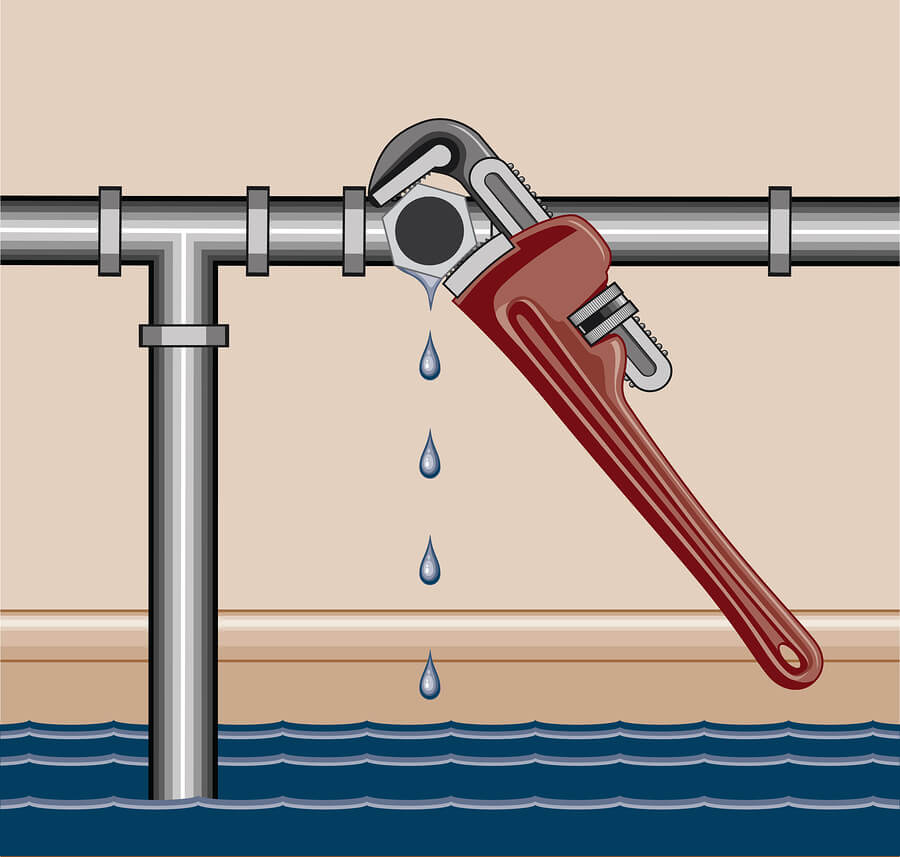Recognizing and Fixing the Six Most Common Water Leaks in Your Home
Recognizing and Fixing the Six Most Common Water Leaks in Your Home
Blog Article
Just about every person may have his or her own assumption when it comes to How to Find Water Leaks.

Leakages not only trigger waste of water however can additionally cause unneeded damage to your house as well as promote unwanted natural development. Water leakages could go unnoticed because most of the pipework in our home is hidden. By comprehending and looking for day-to-day scenarios that create leakages, you can secure your house from future leakages and also unneeded damage. Today, we will look at 6 leakage triggers that may be causing your pipelines to leak.
Elbowing in roots
Most water leakages begin outside the home rather than inside it. You could see wet spots or sinkholes in your lawn, and also that may suggest that tree roots are attacking water lines causing water to permeate out.
Rusty water systems
This may be the reason of discoloration or warping on your water pipes. If our plumbing system is old, think about changing the pipelines since they are at a higher risk of rust than the more recent versions.
Defective Pipe Joints
The point at which your pipes connect is regularly the weakest web link in the waterline. Pipeline joints can deteriorate in time, leading to water leaks. Unfortunately, most of pipe joints are not easily noticeable. If you have loud pipes that make ticking or banging sounds, specifically when the warm water is activated, your pipe joints are probably under a lot of stress. It is advisable to have your plumber inspect your system once a year.
Immediate temperature changes.
Extreme temperature level changes in our pipelines can cause them to broaden as well as get all of a sudden. This expansion and also contraction might trigger cracks in the pipelines, particularly if the temperature are below freezing. It would be best if you watched on exactly how your plumbing works. The visibility of the formerly pointed out situations often suggests a high threat.
Poor Water Connectors
Sometimes, a leak can be caused by loosened pipes as well as pipes that provide your devices. More often than not, moving is what causes the loose water Links. You may find when it comes to a cleaning device, a hose might spring a leak as a result of shaking throughout the spin cycle. In case of a water links leak, you may observe water running directly from the supply line or puddles around your devices.
Clogged Drains
Blocked drains may be bothersome and inconveniencing, however they can sometimes end up triggering an overflow leading to break pipelines. Maintain eliminating any products that might decrease your drains that can block them to avoid such troubles.
All the above are root causes of leakages however not all water leaks result from plumbing leakages; some leakages could originate from roof covering leaks. All leaks must be fixed immediately to stay clear of water damages.
Leaks not only cause waste of water however can additionally create unnecessary damages to your residence and promote undesirable natural development. By recognizing and also looking for day-to-day scenarios that trigger leakages, you can secure your home from future leaks and unnecessary damage. Today, we will look at six leak causes that may be creating your pipelines to trickle.
At times, a leakage can be created by loosened hoses as well as pipelines that provide your appliances. In situation of a water connections leakage, you might see water running straight from the supply line or pools around your appliances.
Tell-Tale Signs of a Water Leak
The Sound of Running Water
If you’re hearing water running, your first step should be to check your faucets, toilet valves, and outdoor spigots. If everything if status quo, take an exact reading of your water meter and don’t use the water for a few hours. Then, take another meter reading. If there has been no change, that means water is not running (and maybe it’s time to have your hearing checked!). If the reading has changed, however, this indicates that water is indeed flowing and you most likely have a leak.
Wet or Damp Floors
You’re walking across your carpet and suddenly squish—your sock is soaked! The dog doesn’t look guilty and your child swears they didn’t spill anything. That means you’re likely looking at sewer leakage. Now, it’s easy to just soak it up with a towel and call it a day; however, this won’t stop the leak. Ignoring the problem allows moisture to build up, ultimately causing mold or mildew. Not only is this smelly, it can be very toxic and harmful to children, the elderly, pets, and those with weak immune systems. Don’t risk the health of your home and your family—call in a professional to take care of the problem.
Foul Odors
If there’s an unpleasant smell in your home and you can’t locate the source, don’t just light a candle or spray some Febreze. Funky smells are often due to mold and mildew, which spread fast under ideal conditions (optimal temperature and level of humidity). Growth begins within about 24-48 hours, and spores start to colonize in 3-12 days, becoming visible to the eye within about 18 days. If you think the odor is leak-related, get a plumber out as soon as possible to mitigate damage from rapid fungi growth (and rid your home of the foul odor).
Overgrowth in the Lawn
Unless you didn’t fertilize your lawn evenly, a lush patch of grass in a select area of your lawn, or concentrated wet spots, indicate pipe leakage which is acting as a fertilizer. Left untreated, hazardous bacteria in the underground waste will quickly turn into a messy situation, going from lush growth to lawn destruction.
Wall Cracks
Over time, even the littlest of leaks can cause cracks in the foundation of your home and compromise the entire structure. How does it happen? The leak continues hammering away at the same spot in the ground beneath your home, eventually causing it to shift slightly. Now, you’d never feel this shift, but your walls will. This can be a very dangerous situation, so if you’re seeing vertical or diagonal cracking in your walls it’s best to call a plumber right away.
https://www.expresssewer.com/blog/6-telltale-signs-of-a-water-leak-in-your-home

I am very inquisitive about Top Causes of Home Water Leaks and I really hope you enjoyed reading the entire piece. Do you know another individual who is excited by the topic? Please feel free to share it. I love reading our article about Common Water Leaks In House.
Call Today Report this page